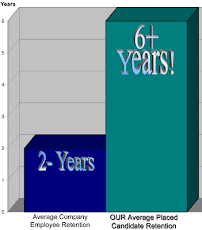
Published in IEEE Todays Engineer
-Gary Perman
Many employers are feeling the double-edged sword of economic recovery. One the one hand, there’s the exhilaration that the recession may be ending; on the other, the stress of depleted inventories and resources, and the constant challenge of revenue growth. This plurality of thought is changing not just the landscape of how management views its continued corporate growth, but its relationship with its employees as well.
Recent federal incentives have seeded many companies in markets such as wind, solar, energy, automotive and the electronics industries to spur job creation. I have seen a flurry of industry growth and employee optimism. Unfortunately, federal incentive funding is also “running out,” exemplified by the Solar Panel incentives in Colorado, resulting in the closure of branch offices, and fueling the merger/acquisition of other companies. Venture capital remains tough to come by in the United States, and further contraction of venture firms is expected domestically so many entrepreneurs are reaching out to financiers in places like Poland, Brazil, Israel, India and China. to invest in America’s emerging technologies. Adding to the confusion is the big question: “Should we, as companies, grow, expand, or stay put? If our crystal ball were firmly in place, the answer would be easy, but accurately reading the pulse of industry in the next few years is beyond the scope of reality.
As managers focusing on this conundrum, you may be ignoring an even deeper concern—the employees and team spirit that drive your success. These are the very individuals who help your company grow and prosper, yet, as the economy slowly recovers, may, at this very moment, are thinking about leaving you.
Despite the recession, most employers have had a very difficult time recruiting and hiring away highly-qualified, technically-proficient people. No amount of advertising would entice them away from their current jobs because they fear any employment change. They are also not reading the very publications that would motivate them to seek you out, even though their unhappiness grows. The end result is a tremendous number of unfulfilled high-tech jobs, fueling the belief that the United States is plagued with a significant engineering shortage.
That perception is changing, though, as industry begins its slow but steady recovery, and consumer confidence grows. With an emerging light appearing at the end of this hiring abyss, and employees start to feel a bit more comfortable peeking out from behind their cubicles, this trickle will soon become a stream.
read the rest at http://www.todaysengineer.org/2011/Apr/employee-retention.asp
















1 comment:
Nice post.I liked it
Supply Chain Management Certificate
Post a Comment